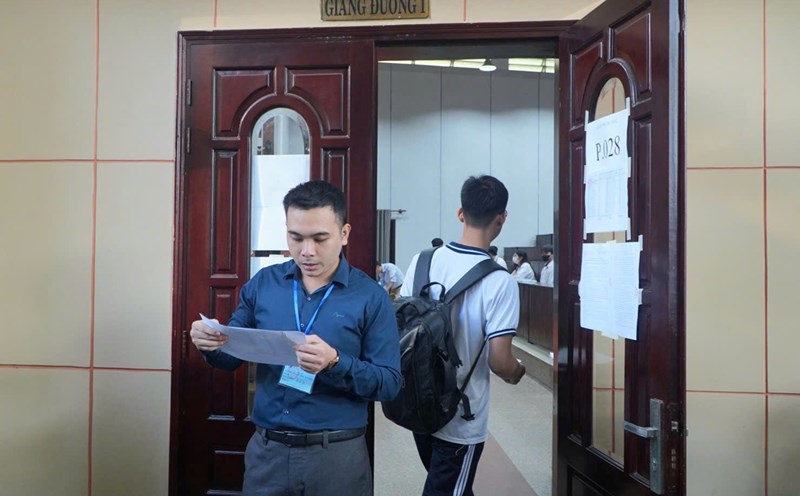The court's words:
From dirty organ shops in Me Linh to southern kiosks (Hoang Mai, Hanoi) and to processing candy establishments, the penetration journey of Lao Dong Newspaper reporters shows a painful reality: Cheap food of unknown origin, no quality criteria... is increasingly seeping into people's meals.
The "bosses" are hidden
Without too many procedures and operations, just a few clicks on Facebook, Zalo or TikTok... consumers can find a series of accounts selling "specialties" such as pork belly, ovaries, clean organs at incredibly cheap prices.
Attractive advertisements such as " loai 1", "clean, fresh, delicious" seem to have defeated the psychology of many consumers who prefer cheap.
However, according to the reporter's records, most of the suppliers could not present quarantine papers, invoices or any evidence of origin. All transactions take place in reservations, avoidance, and even fear.
Approaching from a group specializing in selling frozen food on social networks, the reporter was introduced to a person named Tuan, who claimed to be the owner of a large food warehouse in Me Linh (Hanoi). Tuan said he was busy collecting goods in the southern provinces, so he told reporters to contact Linh - the manager of a frozen warehouse near Me Linh flower market.
Although they agreed to meet at the warehouse - where Linh worked, the last "view" took place in a small cafe near Me Linh flower market. Here, Linh brought a strip of pork belly weighing more than 3kg, which was Milky and had an unpleasant odor. "That is type 1, priced at 200,000 VND/kg. Taking a whopping will be much cheaper," Linh firmly agreed.
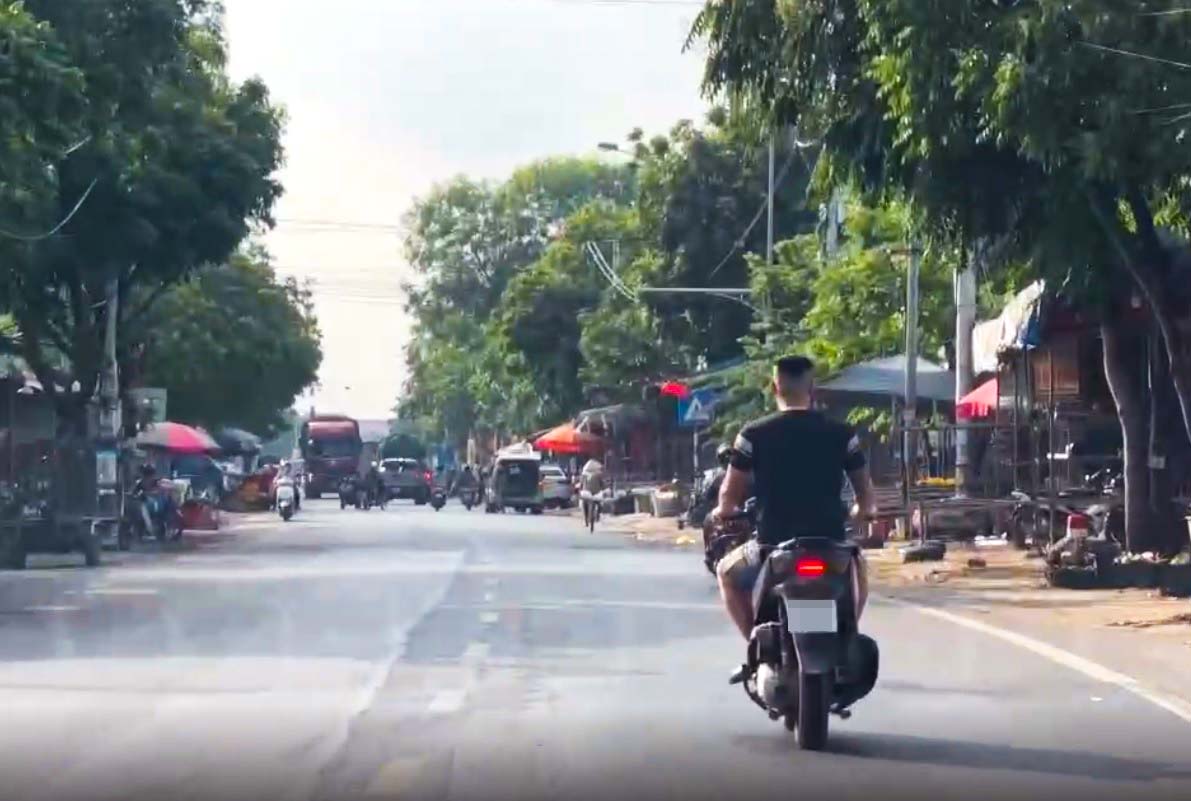
When the reporter questioned why he was not allowed to go to the warehouse to see the goods, he received a short response from a man named Linh: "The goods are prohibited goods, mainly smuggled goods, without papers, at this time it is " sensitive" so it is not possible to risk the goods to customers looking at the warehouse".
Continuing to raise the issue of buying large amounts of sprouts, Linh affirmed: "There are many. If you take 200kg/month, we will divide it into weeks, both keeping it fresh and avoiding detection.
According to Linh, the bulbs have milk glands, so if frozen for a long time, they will be dry and of poor quality. And due to the high demand from restaurants and bakeries in the inner city, this type of food is always "sold out" every time it is imported.
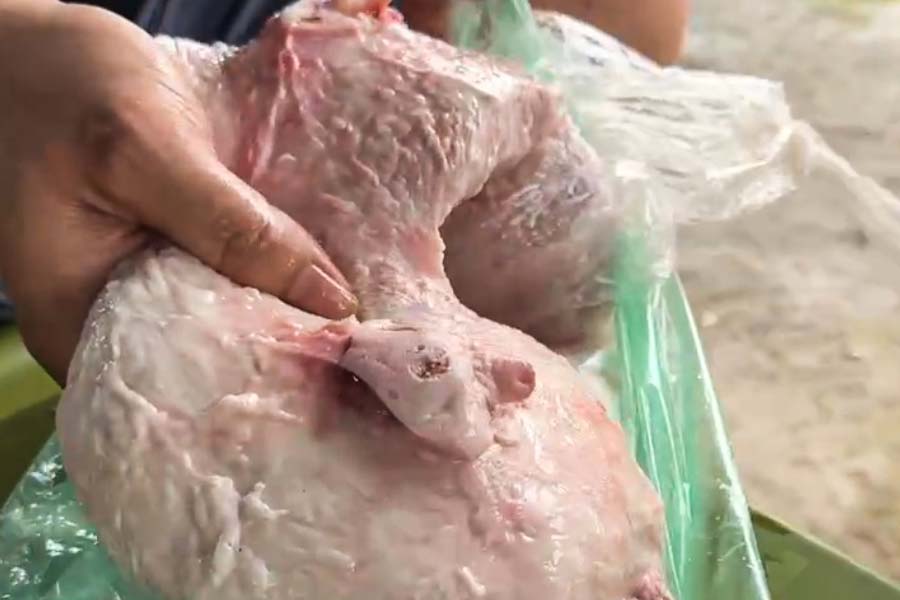
"We just need to import or collect from acquaintances, each batch of about 100kg of sprouts, and sell them all within 1-2 days," Linh said. The main source of goods is provided to restaurants and bakeries in the inner city of Hanoi. There are establishments that regularly order 5060kg per day, causing this item to fall into shortage many times due to high demand.
Notably, during the discussion, the man named Linh appeared extremely cautious, constantly observing around, his eyes full of vigilance. The worry was clearly shown when Linh knew she was trading in a sensitive item, which was at risk of being discovered and handled by the authorities.
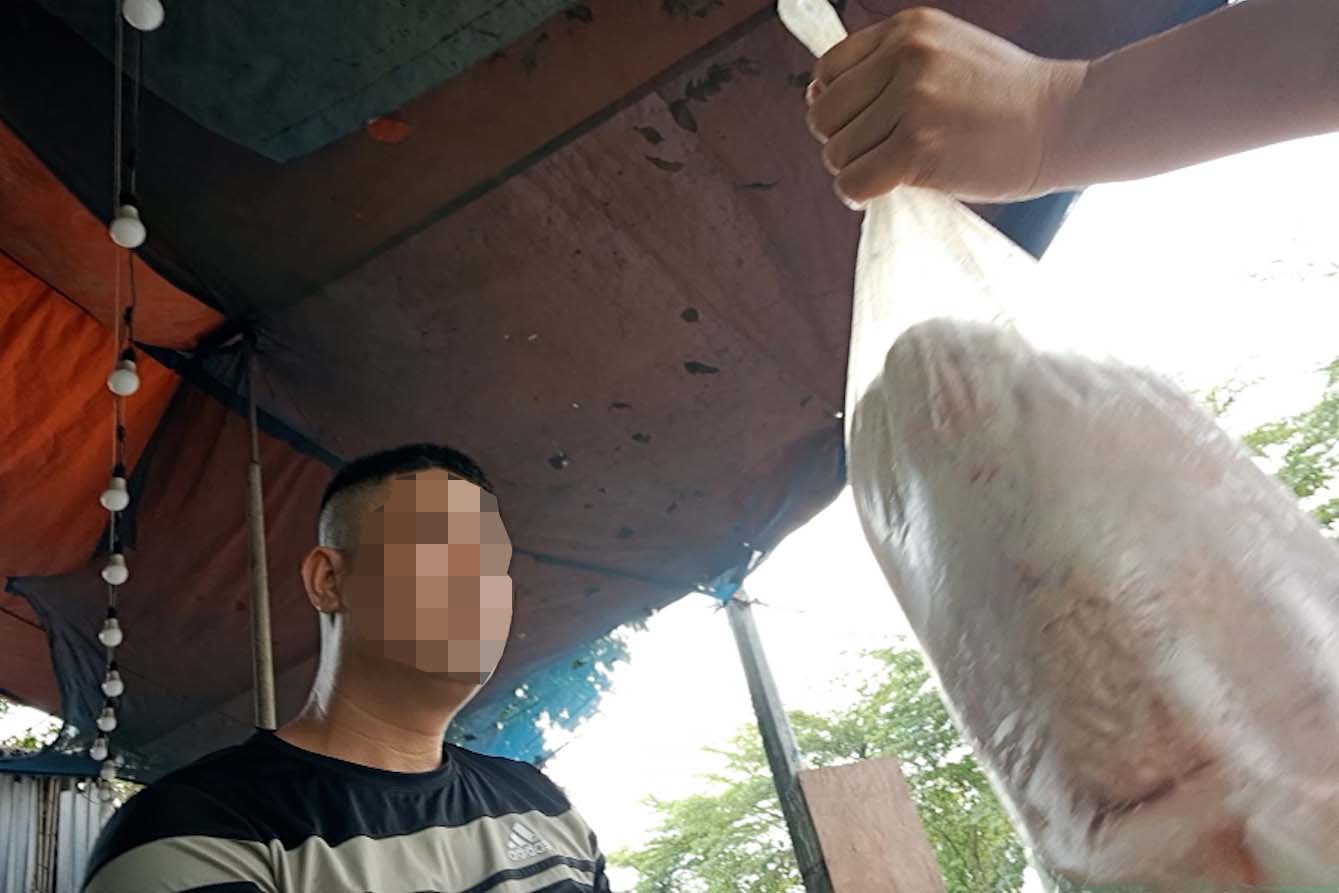
While the reporter was talking to Linh, Tuan - who previously introduced himself as the owner of a large-scale food warehouse in Me Linh - suddenly proactively called the reporter.
"What is the product quality? Are you satisfied with it yet?", Tuan asked, and at the same time promised to offer a more preferential price if you agreed to take the goods long-term. And although the reporter has repeatedly expressed his desire to meet in person to discuss, this person is still determined not to reveal himself. The unusual secretiveness made Tuan's business activities even more mysterious.
Quynh Chi Food and "ghost warehouses"
Continuing to follow the units selling and wholesale organs and pork belly on social networks, the name "Quynh Chi Food" has emerged, and is being spread by the people to be a big success in Hanoi. It is still a familiar scenario, reporters cannot see the goods at the warehouse, only pre-order and deliver them on time.
After contacting by phone, Quynh Chi Food's staff promised the reporter to deliver the shipment including the tripe, small eggs, pig organs, etc. However, when the delivery person arrived at the meeting place, all of the above foods were only packaged in a sketch, without labels, without red invoices, but only a simple printed sales invoice.
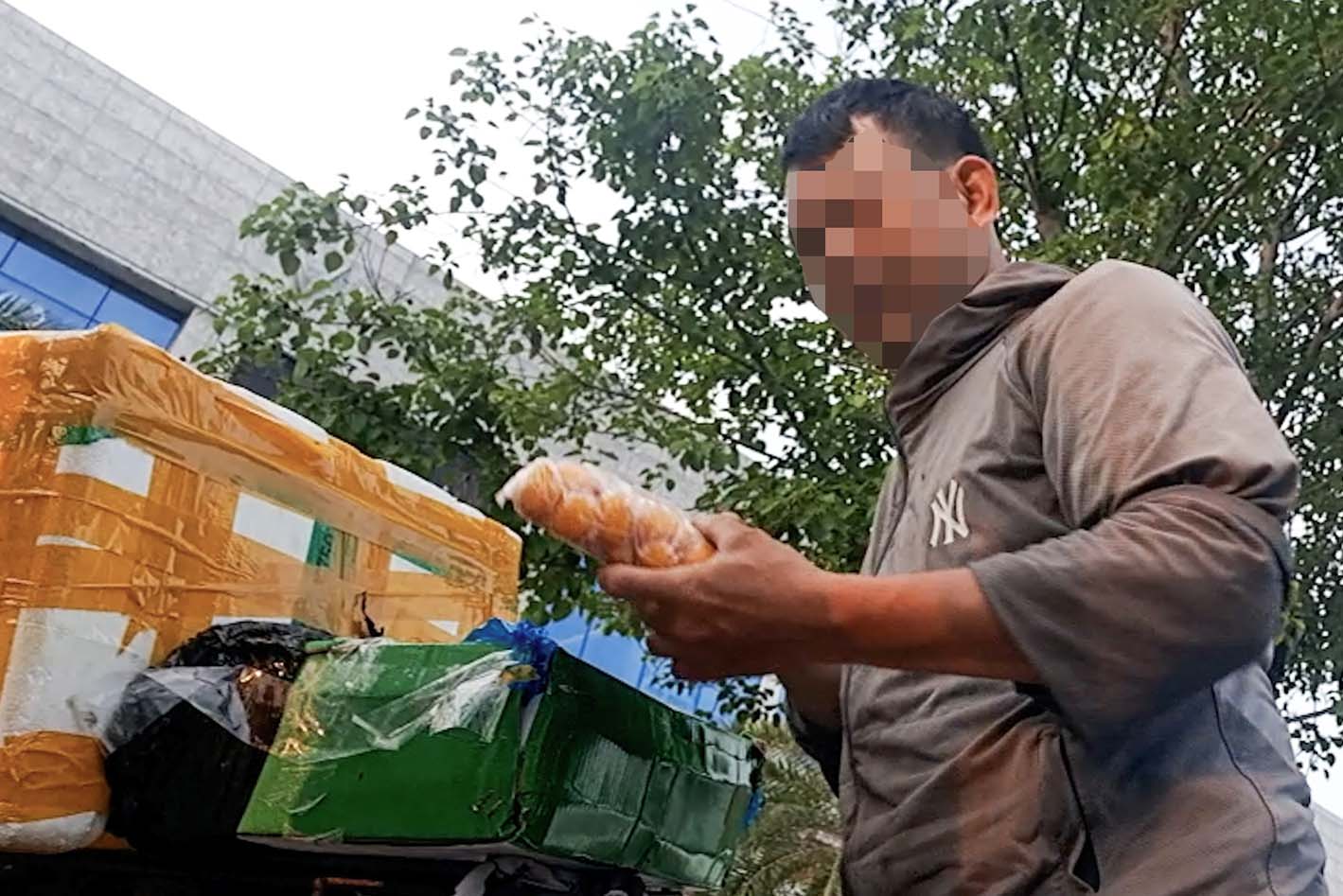
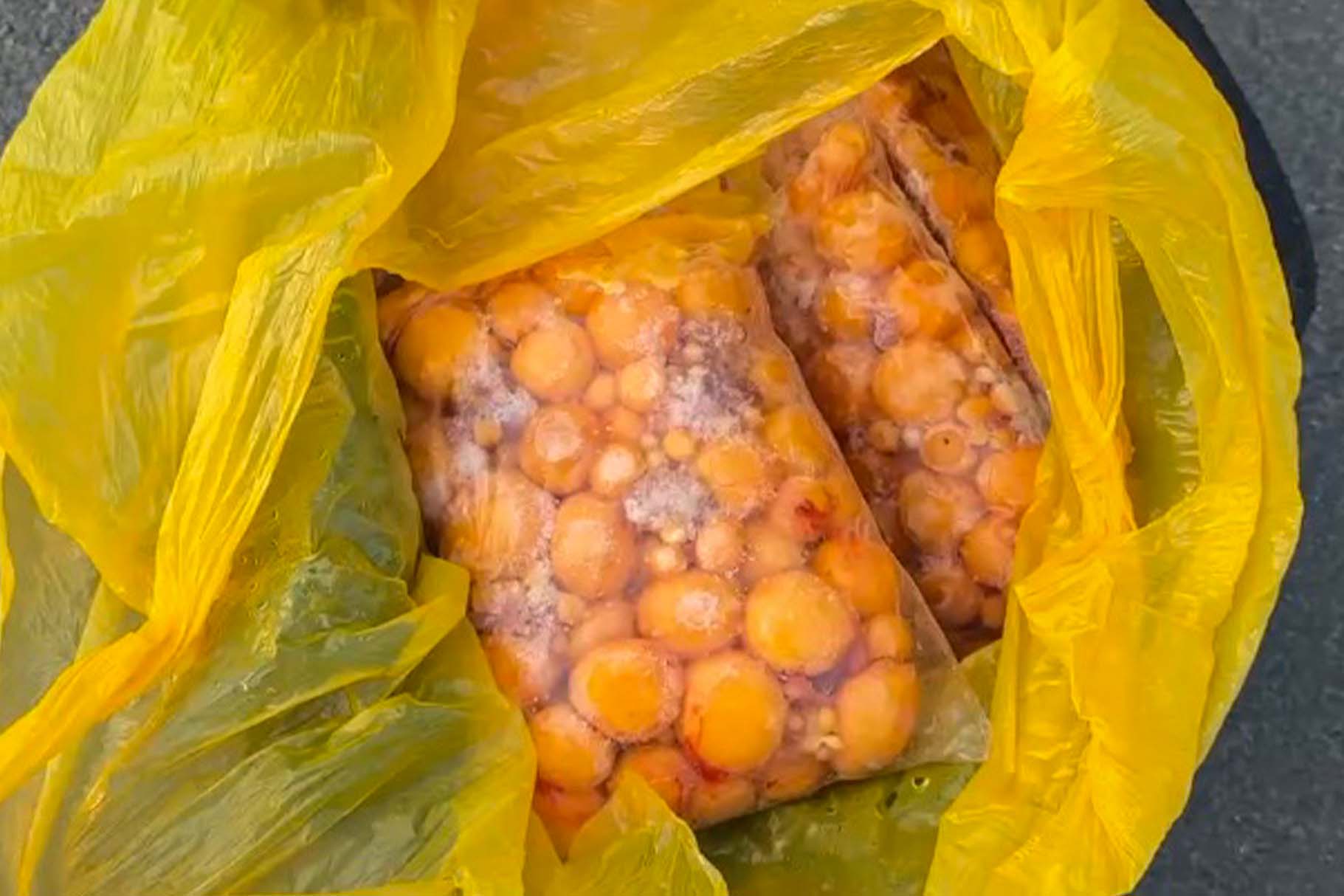
This bill shows the address at alley 138/51 Y Lan Street (Duong Noi, Ha Dong). Following the address, when arriving, the reporter noticed that this was a "ghost warehouse" with a solid iron gate locked tightly with chains, without any business activities.
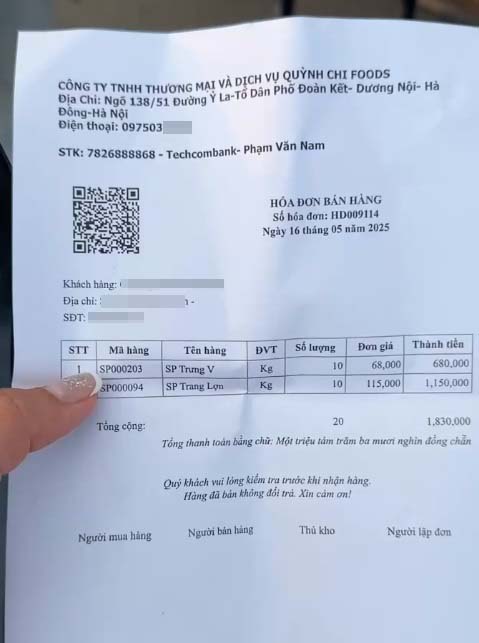
Some nearby households confirmed that this location was once bustling with people delivering and receiving goods, but recently it has been "inactive", the doors are always closed.
When they continued to contact Quynh Chi Food, the unit's phone number did not pick up the phone, all communication was cut off.
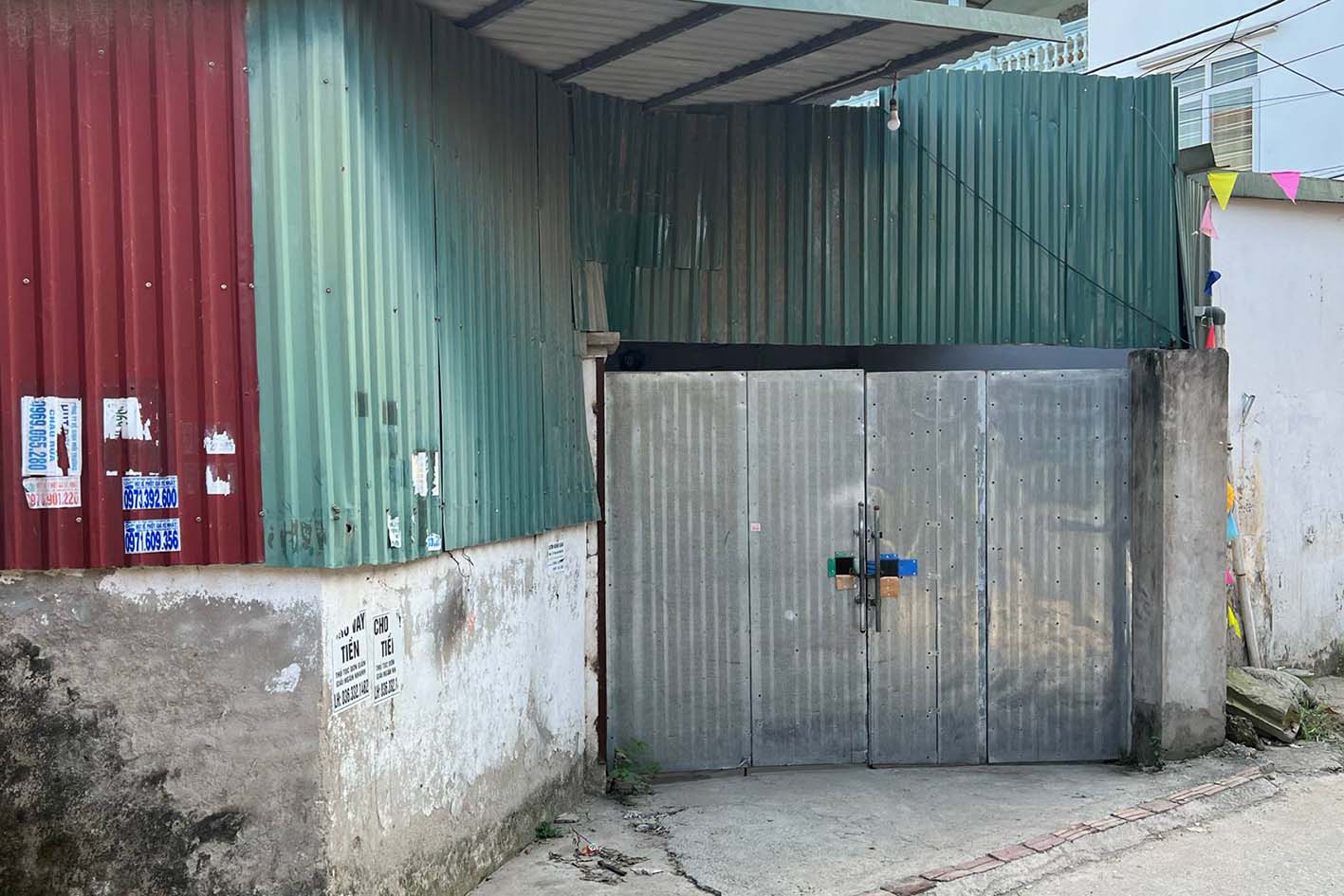
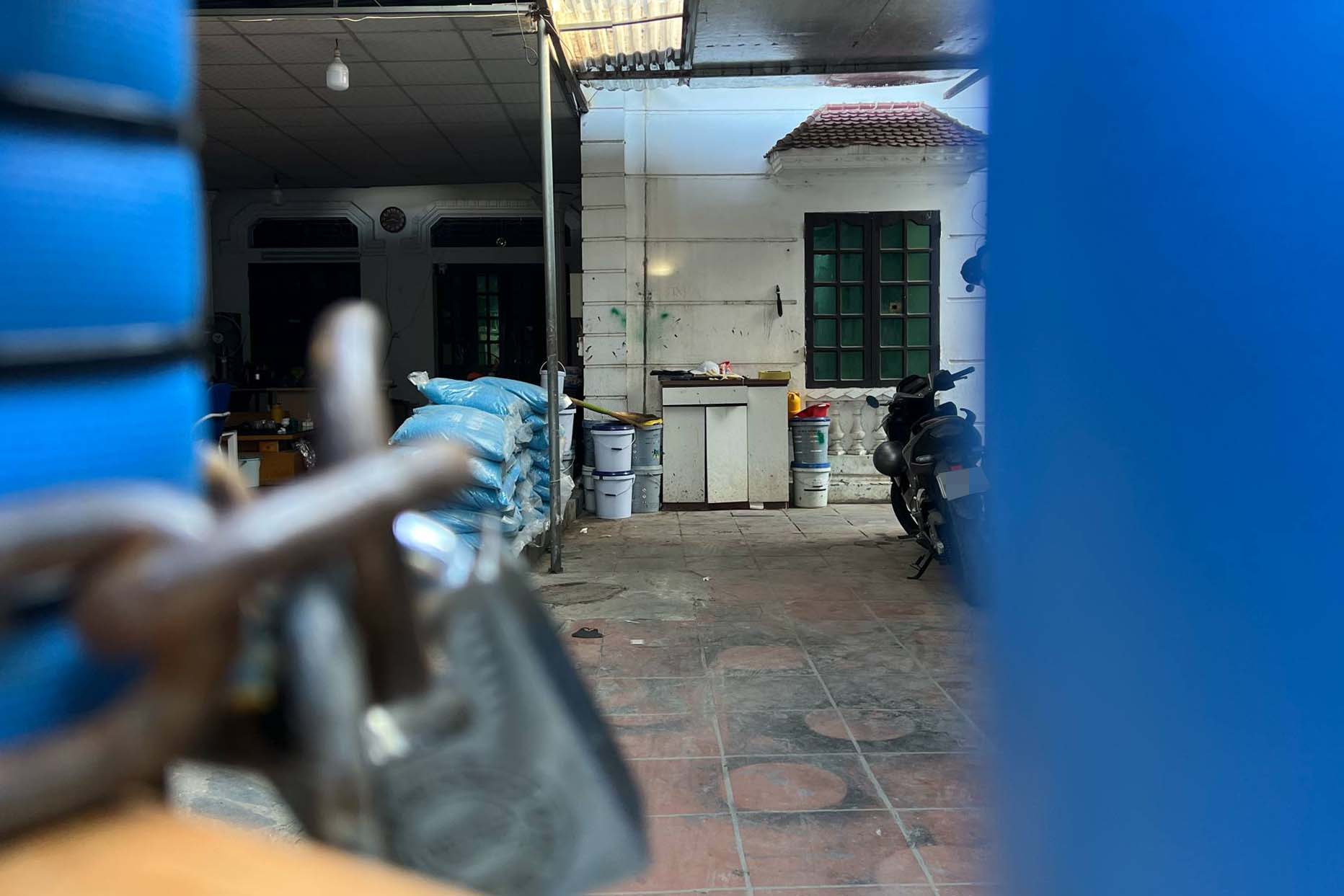
"Pressure and organ distributors" hidden in the Southern unit market
Not only secret cold storage facilities, but also stores inside the unit markets are an important link in the food supply chain of unknown origin.
At the Southern Unit Market (Hoang Mai, Hanoi), reporters were guided to a store specializing in selling frozen food on Tan Mai Street (near the foot of the pedestrian bridge).
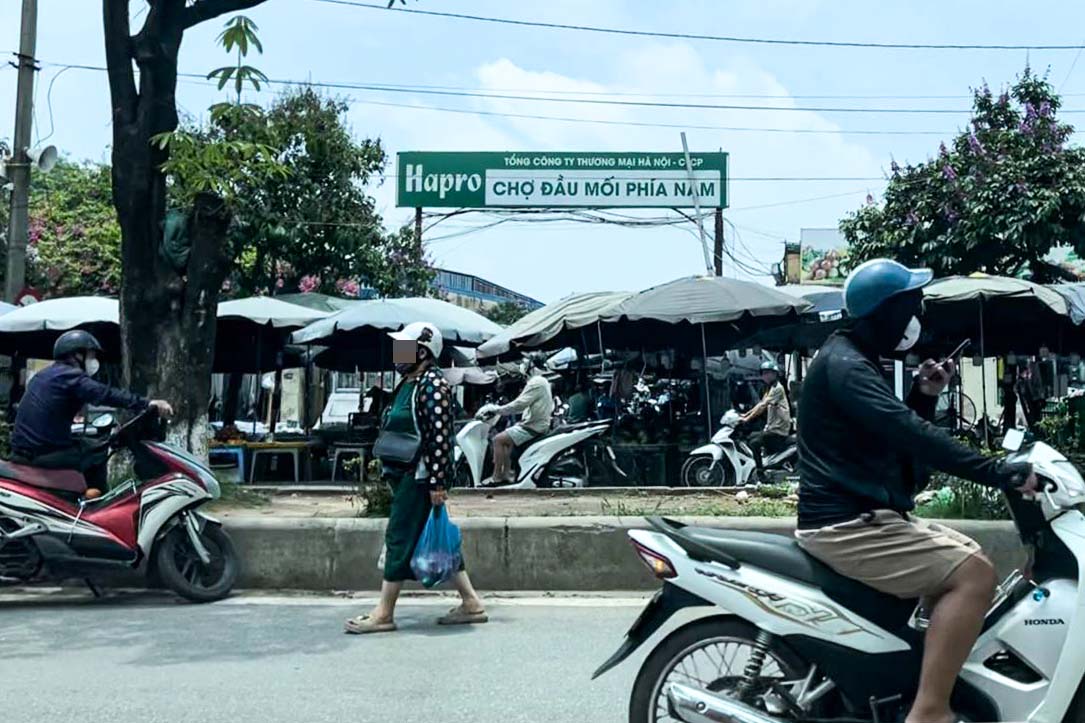
The staff of this store shared: "The organs and breast products here are all sold wholesale, not publicly displayed, regular customers will pre-order depending on the quantity, but we mainly sell by bird's nest unit, instead of kg. But if you still want to buy retail, the price will be only 90,000 VND/kg".
This is considered a competitive cheap price but surprisingly the food introduced is "fresh and delicious food that has just been taken out of the bep".
Through observation, although it was only mid-morning, the restaurant staff had informed that all those days were "sold out". Meanwhile, inside the store, there is also a list of regular customers for convenient delivery. According to the staff, most famous breakfast and drinking establishments in this area import frozen food from here to serve diners.
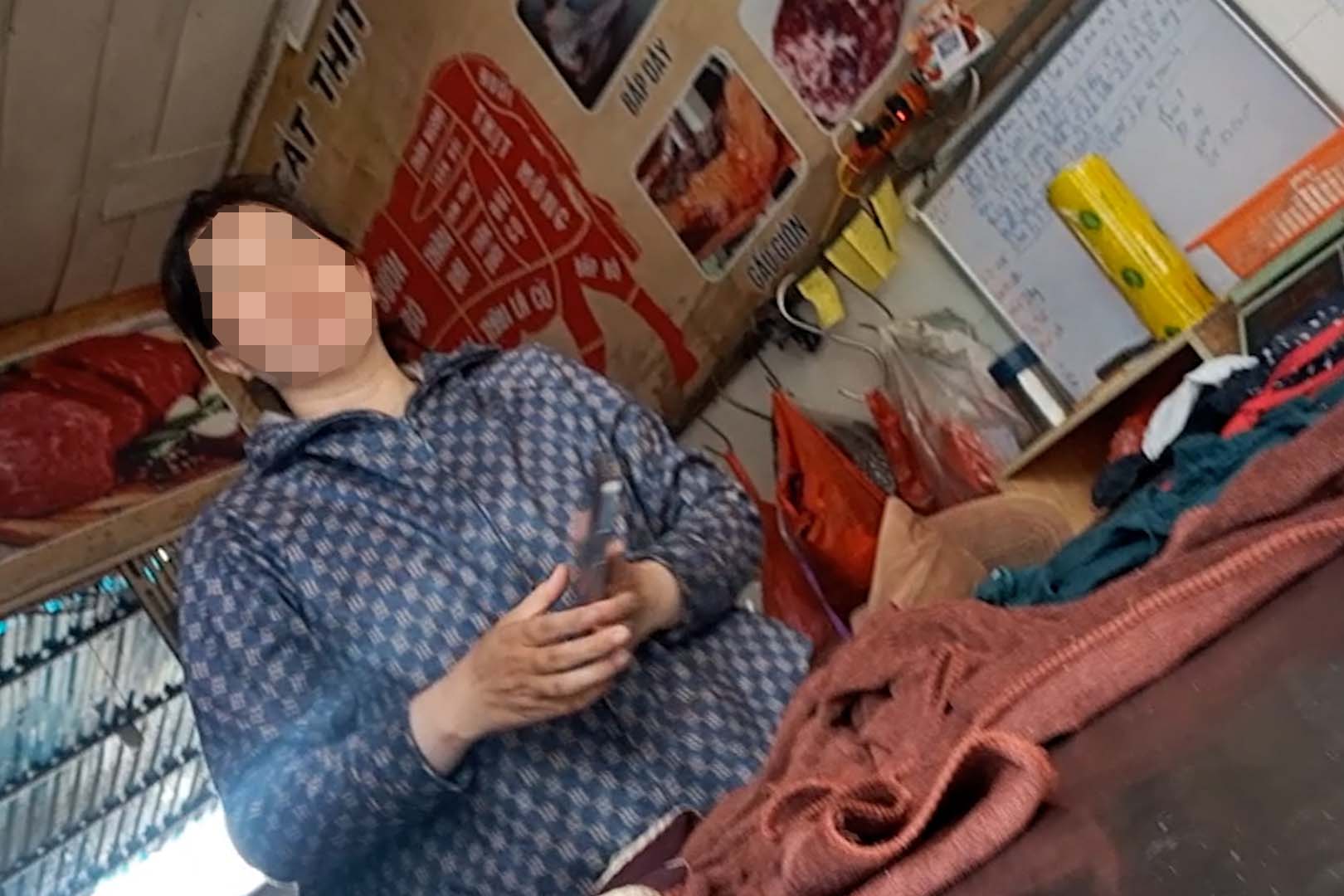
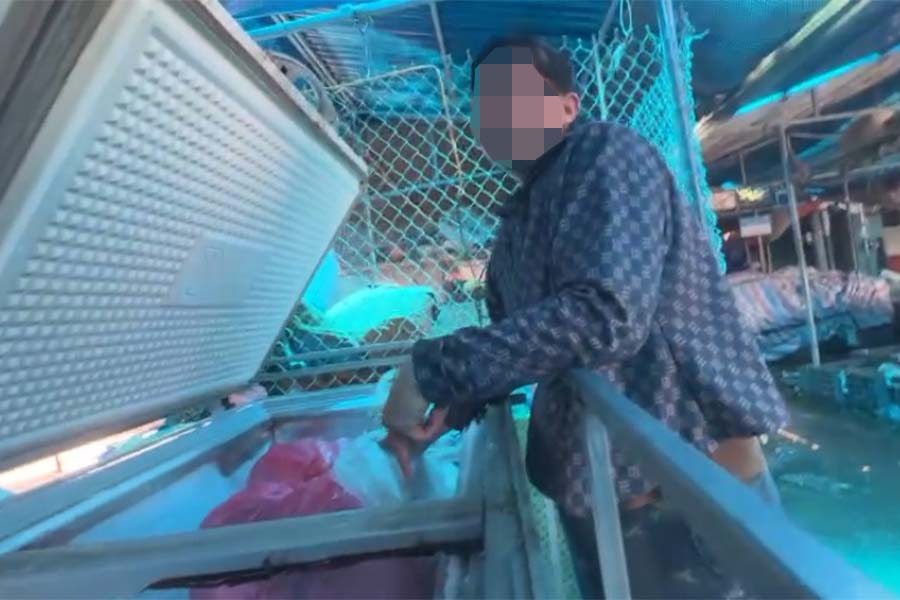
Traders in the market said that items such as fallopian tubers and fallopian tubers are always available but must be booked in advance for many reasons. "No one leaves it in the store. This food is very sensitive, if you want to buy it, just order it, someone will deliver it right on the spot, said a trader.
The tricks of "bosses" in selling food of unknown origin
During the recording process at many addresses specializing in selling frozen foods, which are at the origin and animal organs, a noticeable feature in the supply chain of organs, atoms, and ovaries of unknown origin is anonymousness. Trading "bosses" rarely trade directly. Instead, they assign employees, subordinate managers or shippers (delivers) to handle everything.
Buyers also have little chance to access real warehouses. Even when collecting wholesale goods, the warehouse address is still kept secret with the reason "at this time, the authorities are doing things harshly". Every stage is organized with a methodical process, with clear assignment from goods gathering, transportation, to transactions, and money collection.
Foods of unknown origin will be "legalized" with fake invoices or mouthful transactions, then become "specialty" or favorite dish on drinking tables, sidewalk meals, and bakeries serving diners.
* The character's name has been changed.



